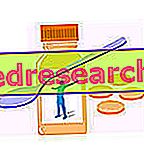Key points
Nasal congestion (or a stuffy nose) is a recurrent symptom in many pathologies affecting the respiratory tract. It is characterized by the accumulation of mucus in the nasal cavity and by the inflammation of the respiratory mucosa.
Nasal congestion: causes

Nasal congestion: symptoms
Nasal congestion can trigger symptoms of varying degrees: alteration of hearing and language ability, sleep apnea, difficulty in resting, dyspnea, snoring. Complications: hypoxia, feeling of suffocation, heart failure (blocked nose associated with enlarged adenoids).
Nasal congestion: remedies and drugs
The cure for the stuffy nose is subject to the triggering cause: antihistamines (for the stuffy nose dependent on allergies), NSAIDs, paracetamol and aspirin (for nasal congestion related to flu), and decongestants. When necessary, the removal of adenoids is an effective remedy for nasal congestion related to enlarged adenoids.
Definition
Nasal congestion is synonymous with a stuffy nose and nasal obstruction. We are talking about a very common respiratory disorder, characterized by two constant elements:
- accumulation of mucus inside the nasal cavity
- inflammation of the lining of the nasal cavity
Nasal congestion is a very common symptom in many diseases, such as respiratory obstruction, conjunctival congestion, rhinorrhea, viral rhinitis, allergies, colds and many others.
Every individual, at least once in their life, has complained of symptoms of nasal congestion: from what has been said, we understand how widespread and frequent the disorder is.
Despite being a popular disease (if it can be defined as such), nasal congestion creates more or less important discomforts, especially when it manifests itself in its chronic form. However, patients suffering from nasal congestion tend to self-manage the disorder, resorting to do-it-yourself natural remedies, or to over-the-counter medications recommended by friends or relatives. Despite being a totally reversible phenomenon and simple resolution (in most cases), we must not forget the advice of experts in the health sector, always fundamental. In fact, the neglect of the disease means that the phenomenon of nasal congestion remains largely ignored in its epidemiological dimension: the consequences of this approach - evidently incorrect - trigger a series of effects not only for the patient himself, but also for the health system in self.
The objective of this article is to inform the reader about the causes, symptoms and consequences of the disease; despite the therapeutic strategies described, we remind you that the request for a medical consultation is always and in any case the first trick to consider, even in the case of a simple disorder such as nasal congestion.
Causes
Nasal congestion recognizes the main cause of inflammation of the respiratory mucous membranes.
But what does the inflammation of the nasal mucosa depend on?
The most common causes of nasal congestion are:
- Pollen allergies and seasonal allergies
- Deviation of the nasal septum
- Hay fever
- Pregnancy
- Inhalation (passive or active) of large quantities of cigarette smoke
- Infections of the respiratory tract
- Influence
- Adenoid enlargement: nasal congestion dependent on this disease is a serious problem. In fact, especially affected children, they can develop sleep apnea, hypoxia and even heart failure.
- Nasal polyps
- Cold
- Rhinitis
- Sinusitis
- Inordinate administration of some drugs (nasal drops or nasal sprays formulated with oxymetazoline, phenylephrine, xylimetzoline, morniflumate, naphazoline).
Particular is the correlation between stuffy nose and gastric reflux: many patients suffering from reflux diseases also complain of chronic sinusitis (therefore chronic nasal congestion). Probably, acid reflux can reach the nasopharyngeal area, creating irritation and inflammation also in the mucosa of the respiratory tract. Not surprisingly, drugs for the treatment of reflux diseases have proved extremely effective also in the treatment of nasal congestion associated with this pathology.
Nasal congestion in the newborn
If in the adult or in the adolescent the nasal congestion constitutes "only" an soon solvable discomfort, in the newborn the stuffed nose can create serious consequences. Unconsciously, the newborn tends to breathe only through the nose: therefore, nasal congestion in the newborn baby could interfere with breastfeeding (it cannot feed), as well as causing serious respiratory deficits.
Symptoms
In most cases, the symptoms of nasal congestion are rather mild - though annoying - and easily resolved in a matter of days.
In addition to causing DISPNEA (the most common symptom ever), nasal congestion can INTERFERE WITH HEARING and, in some cases, even with the ability to speak.
Do patients suffering from nasal congestion often complain DIFFICULTIES? TO REST: the stuffy nose is in fact correlated with the RUSSARE and with the NIGHT APNEE.
As anticipated, patients suffering from enlarged adenoids and nasal congestion are exposed to even serious respiratory difficulties, such as HYPOXIA, CHOKING SENSATION and heart failure. In such circumstances, surgery (removal of adenoids / tonsils) is the most effective remedy ever.
Often, nasal congestion does not remain a phenomenon in its own right, since it is a symptom common to many diseases. Most people with nasal congestion complain simultaneously of other symptoms:
- Chest pain
- Facial pain
- Temperature
- lack of appetite
- Tearing
- Headache
- General malaise
- Cough
When nasal congestion is found only in one nostril, it is likely that the child has inserted a small object in the nose.
Nasal congestion: therapies and treatments
To learn more: Drugs for the treatment of nasal congestion - Remedies for the stuffy nose
Treatment for nasal congestion depends on the underlying cause.
When the stuffy nose manifests itself on the occasion of flu or cold, the most suitable drugs aim to alleviate the general symptoms: paracetamol (antipyretic par excellence), aspirin and other NSAIDs (eg ibuprofen), with an anti-inflammatory and pain-relieving action, are in absolute the most used active ingredients.
If nasal congestion is related to allergic reactions, antihistamines, possibly associated with corticosteroids, exert their therapeutic function excellently. The remission of allergic symptoms also reflects recovery from nasal congestion.
Children affected by enlarged adenoids are generally subjected to surgery, aimed at removing them: by doing so, the small patient can completely recover from hypoxia and sleep apnea, which often accompany the disorder of enlarged adenoids.
Regardless of the triggering factor, most individuals suffering from nasal congestion benefit from the administration of oral decongestant drugs, such as ephedrine, pseudoephedrine or Phenylephrine. The same active ingredients can be formulated in the form of a nasal spray.
It is recommended not to abuse these decongestant drugs: paradoxically, excessive use could even aggravate the clinical picture of nasal congestion.



